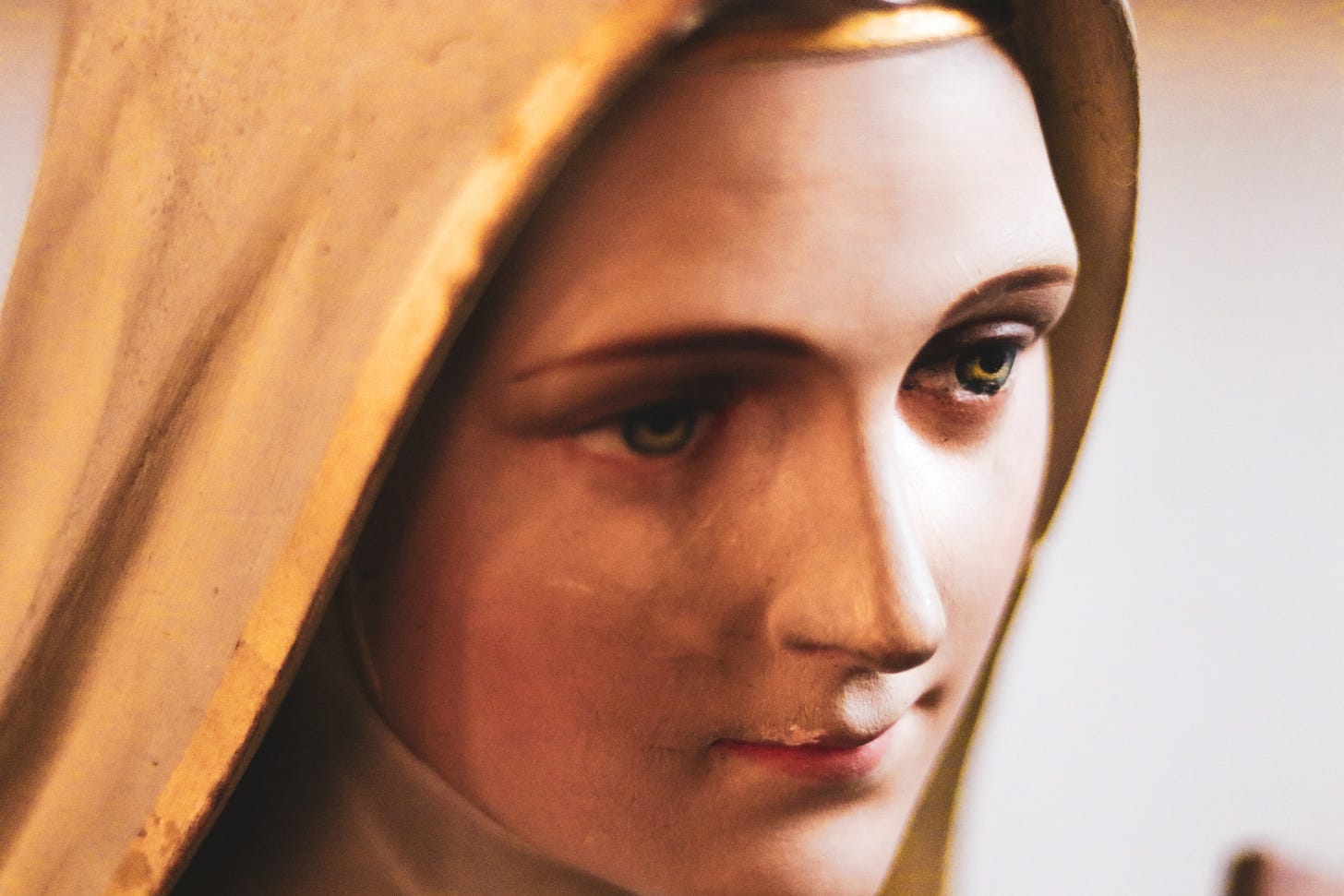Passage:
In the sixth month of Elizabeth's pregnancy, God sent the angel Gabriel to the Galilean village of Nazareth to a virgin engaged to be married to a man descended from David. His name was Joseph, and the virgin's name, Mary. Upon entering, Gabriel greeted her:
Good morning!
You're beautiful with God's beauty,
Beautiful inside and out!
God be with you.She was thoroughly shaken, wondering what was behind a greeting like that. But the angel assured her, "Mary, you have nothing to fear. God has a surprise for you: You will become pregnant and give birth to a son and call his name Jesus.
He will be great,
be called 'Son of the Highest.'
The Lord God will give him
the throne of his father David;
He will rule Jacob's house forever—
no end, ever, to his kingdom."Mary said to the angel, "But how? I've never slept with a man."
The angel answered,
The Holy Spirit will come upon you,
the power of the Highest hover over you;
Therefore, the child you bring to birth
will be called Holy, Son of God."And did you know that your cousin Elizabeth conceived a son, old as she is? Everyone called her barren, and here she is six months' pregnant! Nothing, you see, is impossible with God."
And Mary said,
Yes, I see it all now:
I'm the Lord's maid, ready to serve.
Let it be with me
just as you say.
Then the angel left her.
How is that for a greeting, “You’re beautiful with God’s beauty. You’re beautiful inside and out!”
As someone who has grown up in his faith in the evangelical and Presbyterian worlds, for a long time I was really uncomfortable with Mary. Probably for a number of reasons. One was the religious culture that I was in was wary of anything “Catholic.” Another was the reality of my understanding about women in the faith and church. Mary seemed to really push against some of our widely held beliefs about the role of women. Finally, it was probably just my own issues with misogyny that needed to be dealt with. All of which is to say, I had issues with Mary.
Here I am a few years down the road and I read Mary’s story in a much different light.
Her story butted up against Zachariah’s provide an interesting contrast, no?
Zachariah, once recovering his wits explained to the angel how things were.
Mary, after recovering her senses asked a question in humility.
Zachariah is struck silent.
Mary sang (more about that tomorrow!).
Luke paints this qualitatively different picture between Zachariah and Mary.
The greeting that the angel has for Mary gives a bit of insight into her life. What mattered most is that there was a quality of her relationship with God that shone through. She was a woman who had an authentic faith. In the NIV it says it this way, “The angel went to her and said, “Greetings, you who are highly favored! The Lord is with you.”
To be highly favored by God meant that she was probably a person who lived a life that demonstrated much of what we see in Jesus. One was marked by the fruit of the Spirit:
love,
joy,
peace,
forbearance,
kindness,
goodness,
faithfulness,
gentleness and
self-control.
Do we know this with certainty? No. But, the story that Luke tells in these opening chapters seems to point us in that direction. We see these brief snapshots of this young woman who has a maturity beyond her years.
Mary knew the Scriptures (we see this thoroughly in her song). Mary was a faith-filled woman for whom life was thick with God-presence.
As I process this a bit this morning I am struck by the reality that she felt comfortable asking questions. In her humility she knew that she could ask.
Mary, while faith-filled, didn’t get swept up in the moment. She was able to respond with a gentle question. It wasn’t a question from skepticism or cynicism. She knew how the world worked and wanted to know how all this would come about. Mary was no dummy. There was a wisdom about her.
How much more depth would we find in our faith if we knew we could ask questions? Even more so if our questions were asked from humility, wonder, and curiosity as opposed to skepticism or cynicism. Too often we think there is only the position of faithful or skeptic. That simply is not true.
To ask the question is faith.
There is great freedom in Christianity to wrestle with truth in all its forms. We don’t need to fear the questioning. We can ask, we can struggle, and we can do so in faith.
—





